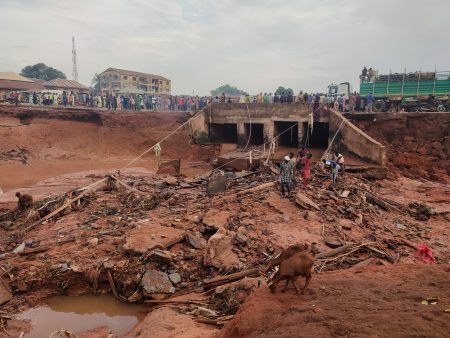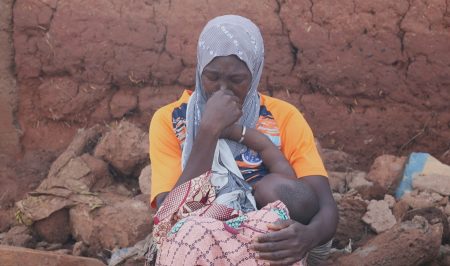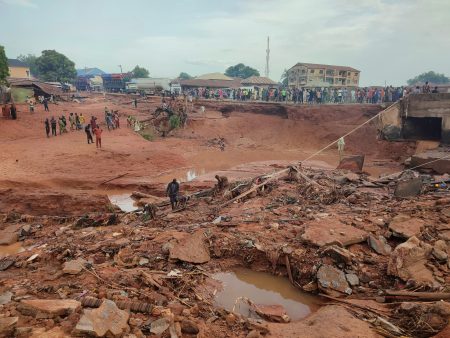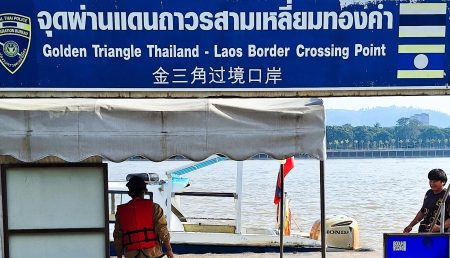The ongoing standoff involving hundreds of trapped miners in South Africa has escalated into a dire humanitarian crisis, with reports of rapidly deteriorating health conditions among those still underground. Initially sparked by a dispute over unpaid wages and unsafe working conditions, the situation has become increasingly desperate as access to food, water, and medical supplies remains severely limited. The miners, many of whom are reported to be suffering from dehydration, malnutrition, and exhaustion, have issued increasingly urgent pleas for intervention and assistance from government authorities and international humanitarian organizations. The precarious environment within the mine, coupled with the psychological strain of the prolonged confinement, is exacerbating the health crisis, raising fears of a potential large-scale tragedy if a swift resolution is not reached.
The standoff began several weeks ago when a group of miners, predominantly migrant workers from neighboring countries, initiated a protest against what they allege are exploitative labor practices by the mining company. Their grievances include allegations of wage theft, hazardous working conditions that violate safety regulations, inadequate provision of personal protective equipment, and a lack of responsiveness from management to address their concerns. The miners, feeling cornered and unheard, opted for the drastic measure of barricading themselves within the mine as a form of protest, demanding immediate action to rectify their grievances. The situation quickly devolved into a standoff as negotiations between the miners, the mining company, and government representatives stalled, leaving the trapped workers in a precarious limbo.
The already tense situation has been further complicated by the complex web of political and economic factors that underpin the mining industry in South Africa. The sector, a historically significant contributor to the nation’s economy, has been grappling with declining profitability, increasing operational costs, and heightened labor unrest. These underlying pressures have contributed to a strained relationship between mining companies and their workforce, often characterized by accusations of exploitative practices and inadequate worker protections. The current standoff, therefore, represents a culmination of long-simmering tensions and highlights the persistent challenges facing the industry, particularly the vulnerability of migrant workers who are often subjected to precarious employment conditions.
The health crisis unfolding within the mine is of paramount concern. Reports from those who have managed to communicate with the trapped miners paint a grim picture of deteriorating health conditions. Limited access to clean water has led to widespread dehydration, contributing to a decline in overall physical strength and increasing the risk of kidney failure. Food supplies are dwindling, resulting in malnutrition and further weakening the miners’ resilience. The cramped and unsanitary conditions within the mine are also conducive to the spread of infectious diseases, posing an additional threat to the already vulnerable population. Exacerbating these physical ailments is the immense psychological toll of the prolonged confinement, with reports of increasing anxiety, depression, and fear among the trapped miners.
The international community has expressed growing alarm over the deteriorating situation and urged the South African government to prioritize the safety and well-being of the trapped miners. Humanitarian organizations have offered their assistance in providing medical supplies, food, and water, but access to the mine remains restricted. Calls for a mediated resolution to the standoff have intensified, with various international bodies urging all stakeholders to engage in constructive dialogue to find a swift and peaceful solution. The South African government, under immense pressure to resolve the crisis, has initiated talks with the mining company and representatives of the trapped miners, but progress remains slow amidst the complex web of competing interests and demands.
The ongoing standoff serves as a stark reminder of the human cost of labor disputes and the vulnerability of workers in precarious employment situations. The dire situation unfolding within the South African mine underscores the urgent need for improved labor protections, effective dispute resolution mechanisms, and greater accountability within the mining industry. As the health of the trapped miners continues to decline, the international community must maintain pressure on all parties involved to prioritize their safety and ensure a swift resolution to this humanitarian crisis. The time for decisive action is now, to prevent further suffering and avert a potential tragedy that could have far-reaching consequences.










